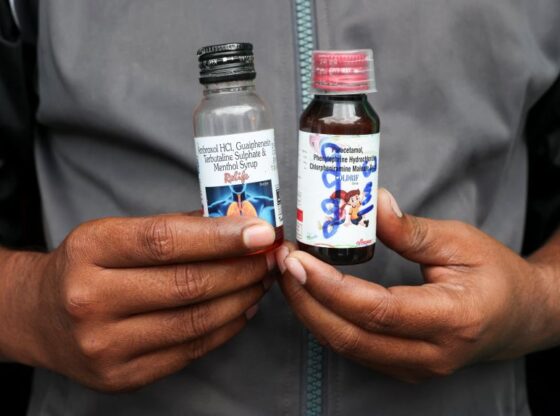The WHO warns against three cough syrups contaminated in India, responsible for child deaths. In Mauritius, these products are not marketed, but the Importers Association is concerned about the evaluation criteria for foreign drugs.
The World Health Organization (WHO) published, on Monday, October 13, a health notice concerning three contaminated cough syrups identified in India: Coldrif (Sresan Pharmaceuticals), Respifresh TR (Rednex Pharmaceuticals) and ReLife (Shape Pharma). According to the agency, these lots present significant risks and can cause serious, potentially fatal diseases. The WHO has urged health authorities to report any detection of these drugs in their country.
The Central Drugs Standard Control Organization (CDSCO), an Indian health authority, said that these syrups were consumed by children under the age of five who recently died in the district of Chhindwara, in the state of Madhya Pradesh. According to the CDSCO, none of these contaminated drugs were exported from India and no evidence of illegal export was detected. The US Food and Drug Administration (FDA) confirmed that these products had not been shipped to U.S. territory.
In Mauritius, Dr. Fazil Khodabocus, acting director of health services, reassures the population: “These products are not present on the local market. The country applies strict criteria before accepting a drug from a foreign supplier, and pharmacovigilance has not reported any problems related to the other cough syrups available here. “
However, concerns persist among professionals in the pharmaceutical sector. Siddique Khodabocus, president of the Association of Small and Medium-sized Importers of Pharmaceutical Products, expresses reservations. Although contaminated syrups are not marketed in Mauritius, he is concerned about the opening of international calls for tenders to all companies, including those possibly pointed out by the WHO. According to him, the Ministry of Health does not carry out a complete due diligence: the evaluation of products is based solely on the documents provided by the suppliers.
The pharmacist recommends laboratory tests for all imported drugs, especially those from countries where quality problems have been reported. It also advocates strengthening the criteria for selecting suppliers during international calls for tenders, limiting participation to companies represented locally by a wholesaler or pharmaceutical importer. For him, these measures are essential to ensure the safety of medicines distributed in Mauritian hospitals.
